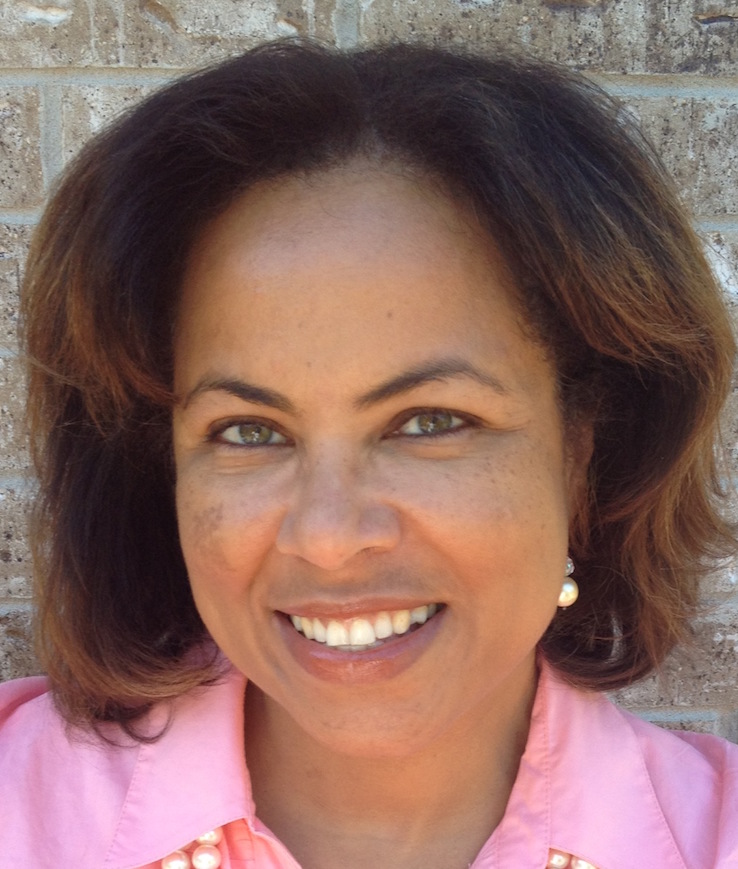Simone Talma Flowers is Executive Director of the Interfaith Action of Central Texas (iACT), and this year’s winner of the Anne Durrum Robinson Creative Initiative Award. iACT’s central mission is to cultivate peace and respect through interfaith dialogue, service and celebration. Simone has over 26 years of experience in nonprofit management, and holds a Bachelor of Arts in Psychology and a Master of Business Administration from St. Edward’s University.
Tell me about your trajectory in the nonprofit and communications world. What led you to iACT?
In 2005, a conversation I had about our beautiful international city of Austin was the catalyst that ultimately led me to iACT. I realized that I want to do everything I can to celebrate the richness of the city and its diversity. This is why iACT was such a natural fit for me. It is a great platform for bringing people together to cultivate peace and respect. I believe so much in its mission. I love celebrating people – who they are, where they come from, and the beauty that each individual brings. How often do you get to do work that brings you such joy in life?
As we’ve seen in recent years, our national discourse is plagued by divisiveness on many levels. As a communicator in service of an organization that seeks to bridge this very divide, what do you draw on to elevate the dialogue and help create understanding in place of conflict?
There is a quote by Rumi that guides me: “Out beyond ideas of wrongdoing and rightdoing there is a field. I’ll meet you there.” I like to call that field the ‘sacred space.’
In order to have success in creating interfaith dialogue – or any dialogue for that matter – you have to establish a strong foundation, or a sacred space, where people know they are seen, heard and valued.
At iACT, we appeal to one of the most important shared values in faith communities, which is that of service. We provide people with the opportunity to serve, and that allows them to share their compassion to do good and truly connect with others.
The success we’ve had in promoting interfaith dialogue and understanding relies on creating very structured conversations with clear ground rules for respect and listening. Our approach is so effective that at the end of conversations, people who start as strangers find a true connection to each other.
When you start with this foundation of mutual respect and understanding, that’s where transformation happens.
What is your proudest achievement to date in your work with iACT?
What comes to mind above all is the ability of iACT to bring people together, to provide that sacred space where people of any faith can know that this organization is theirs. No one can say we are a Buddhist, Muslim, Jewish or Christian organization – they can just say we are a welcoming organization. It’s a lot of work to make sure we can continue to be that way no matter who comes to us, and to ensure that they feel welcome, seen, heard, and valued. Bringing diverse faiths together, working with refugees and with low income homeowners; and seeing the beauty in each person – this is what brings me joy and it’s something I’m tremendously proud to be a part of.
This year’s banner theme is “Sisterhood is powerful,” which reflects the importance of women lifting each other up in work and in life. Who has made a meaningful difference in your career, and what can we do to help build up other women in communications?
There have been so many women in my life who have given of their finances, time, and talents to help me, and it’s taught me that we must always be cognizant to be that person for others. The bonds of sisterhood are what sustain and strengthen me – it’s a safe place where you are not afraid to ask for help or share your vulnerability.
Sometimes it’s just a matter of being willing to reach out – not to be afraid to let people know what their strengths are. You never know the positive impact you will have on their lives. When I interact with others, I think, “What am I supposed to learn, and what am I supposed to teach?” Every interaction is sacred, whether we perceive it as good or bad. So the important question is, how are we supporting each other on our journey of life?
Written by Alejandra Villerreal Weiss
- In Memoriam: Pam Baggett-Wallis - February 5, 2024
- Anne Lasseigne Tiedt, APR - January 6, 2024
- Cindy Friedman - December 6, 2023

